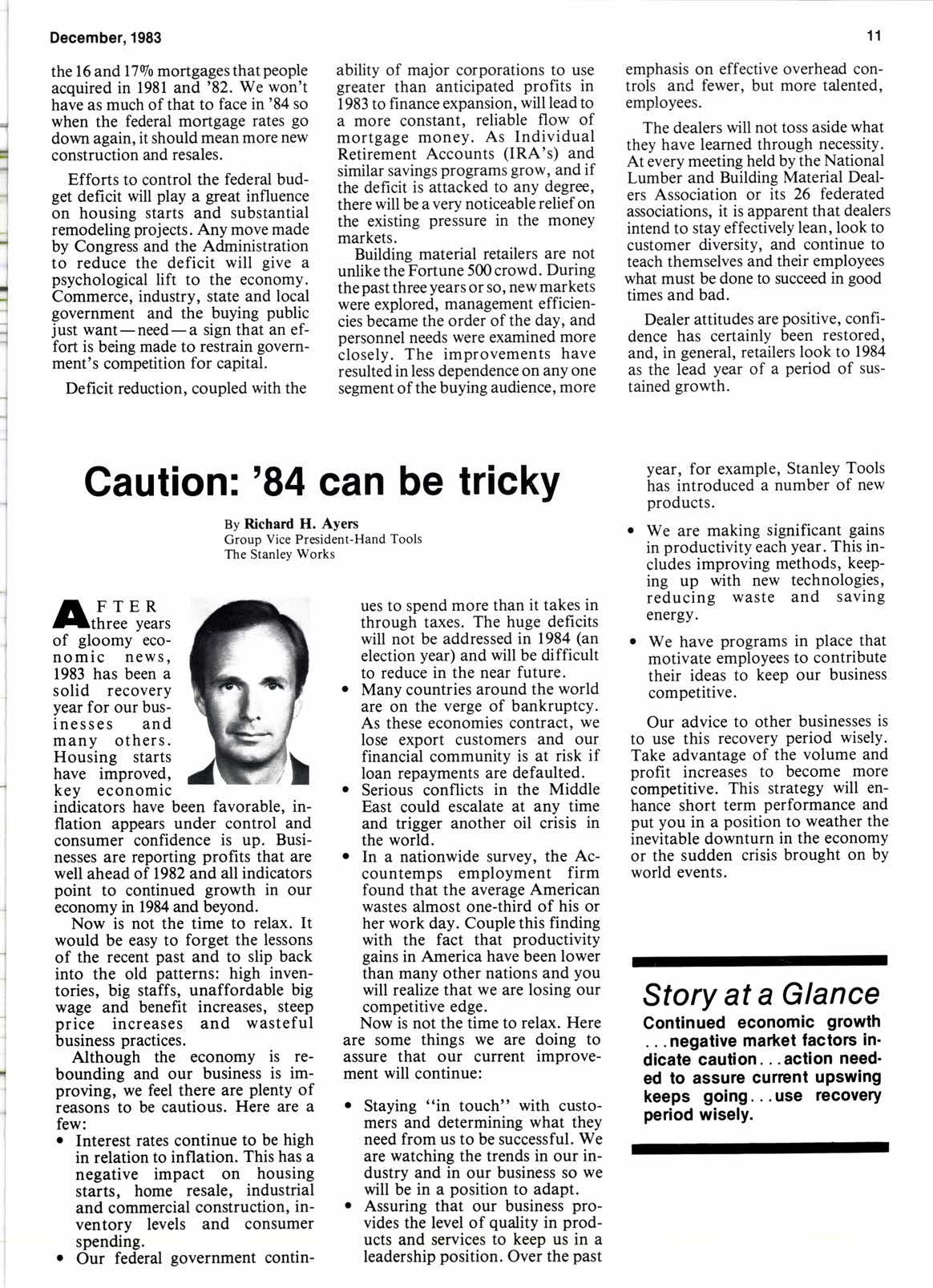
2 minute read
Caution='84 can be tricky
By Richard H. Ayen Group Vice President-Hand Tools The Stanley Works
I FTER
Ilthree vears of gloomy'eco-nomic news, 1983 has been a solid recovery year for our businesses and many others. Housing starts have improved, key economic indicators have been favorable, inflation appears under control and consumer confidence is up. Businesses are reporting profits that are well ahead of 1982 and all indicators point to continued growth in our economy in 1984 and beyond.
Now is not the time to relax. It would be easy to forget the lessons of the recent past and to slip back into the old patterns: high inventories, big staffs, unaffordable big wage and benefit increases, steep price increases and wasteful business practices.
Although the economy is rebounding and our business is improving, we feel there are plenty of reasons to be cautious. Here are a few: o Our federal government contin- ues to spend more than it takes in through taxes. The huge deficits will not be addressed in 1984 (an election year) and will be difficult to reduce in the near future. Many countries around the world are on the verge of bankruptcy. As these economies contract, we lose export customers and our financial community is at risk if loan repayments are defaulted. Serious conflicts in the Middle East could escalate at any time and trigger another oil crisis in the world.
. Interest rates continue to be high in relation to inflation. This has a negative impact on housing starts, home resale, industrial and commercial construction, inventory levels and consumer spending.
In a nationwide survey, the Accountemps employment firm found that the average American wastes almost one-third of his or her work day. Couple this finding with the fact that productivity gains in America have been lower than many other nations and you will realize that we are losing our competitive edge.
Now is not the time to relax. Here are some things we are doing to assure that our current improvement will continue:
Staying "in touch" with customers and determining what they need from us to be successful. We are watching the trends in our industry and in our business so we will be in a position to adapt. Assuring that our business provides the level of quality in products and services to keep us in a leadership position. Over the past emphasis on effective overhead controls and fewer, but more talented, employees. year, for example, Stanley Tools has introduced a number of new products.
The dealers will not toss aside what they have learned through necessity. At every meeting held by the National Lumber and Building Material Deders Association or its 26 federated asociations, it is apparent that dealers intend to stay effectively lean, look to customer diversity, and continue to teach themselves and their employees what must be done to succeed in good times and bad.
Dealer attitudes are positive, confidence has certainly been restored, and, in general, retailers look to 1984 as the lead year of a period of sustained growth.
We are making significant gains in productivity each year. This includes improving methods, keeping up with new technologies, reducing waste and saving energy.
We have programs in place that motivate employees to contribute their ideas to keep our business competitive.
Our advice to other businesses is to use this recovery period wisely. Take advantage of the volume and profit increases to become more competitive. This strategy will enhance short term performance and put you in a position to weather the inevitable downturn in the economy or the sudden crisis brought on bY world events.










